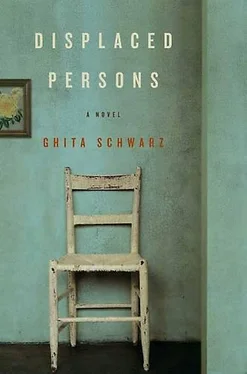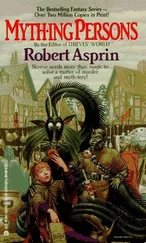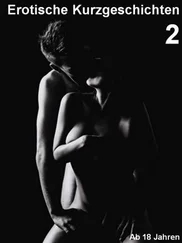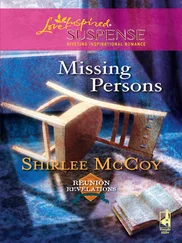A WOMAN WAS MAKING a commotion at the registry for ration cards. The British soldier at the metal desk was shouting, every word enunciated in terrible German, incomprehensible. The woman was speaking in three languages at once, a stuttering German scrambled with Yiddish phrases and Polish words.
He stepped to the side of the line and called out. Let me translate for you, he said in Yiddish. They can’t understand you.
No, she called back, they can’t.
I can help, he offered in German. The British soldier motioned toward him. He pushed himself forward to the front.
She’s making trouble over a thief, said the soldier. Tell her the ration card is for her, not for him. Only one for each refugee!
Only one-he began-
But the woman had understood. What, you want to help them in this? What will you get from them? My brother’s ration card, no doubt. Have you no shame, stealing from your own?
All right, he said. She was a sharp one. He wanted only to help, perhaps find himself in a position to help the soldiers. All right.
She saw his offended look. Her face softened. It’s the boy, she said. They have falsely accused that he-
The British soldier interrupted. Enough, he said in German. One for each of you, now go. He was already stamping the green cards, not even asking for identity papers. It has nothing to do with us! The soldier glared at the woman. Your brother should have known better than to steal like a little animal.
They moved away from the metal desk and into the barracks corridor. But now, out of the hearing of the soldier, the woman turned her speech to him, the words tumbling out, pressured, in Polish. He’s only a boy, she said. Only a child, who had not learned to recognize any law, but a clever one, a good one, they had found each other in a marketplace in their home province, how would he know that the mere act of trading cigarettes, it was not even stealing, only trading, and then of course his false passport, that was what called them to drag the child off like a dog, like a criminal-
All right, he said in Yiddish. You don’t have to explain it to me like I’m a soldier. I know what a hungry child might do.
But she could not stop. The soldiers had taken all the passengers off the wagon. It was like the beginning, all over again! Her brother had fallen in with the smugglers’ brigade, smugglers of food, gold, cigarettes, smugglers of refugees into the western zones, those Jews desperate to go anywhere near a port, a port that would lead them to Palestine or America. She herself, she wanted only to be near the others. What port she was in while she waited, that did not matter, only to be away from the Poles and-
How lucky you are, to have found a brother, he interrupted.
I, she said, her voice suddenly scratching. I-please.
Don’t be scared, he said, the words coming out of him suddenly in Yiddish. Don’t be scared, he repeated. I won’t.
It’s that he isn’t. Her face was flat, but her voice was animated, defiant. I don’t know him. He’s just a young boy who helped me. I said it for them to listen. My brother-I have heard nothing from my brothers, my real brothers-but he-he helped me.
Her blank face and sharp voice pulled at him. He said, The problem is-among the British-it’s difficult to bribe. If it were Russians, we could pay-
She looked at him.
I have money, he said.
She shifted her weight. How do you have money?
Now that she spoke softly, he could hear from her voice that she was at least twenty, a woman. I have money, he repeated.
They stood in silence a moment. Then she spoke. But what-she began-then paused-what is your name?
The question startled him. It was an intimate thing to be asked one’s name. Already he was used to writing his name again in solid lettering, but to say it aloud still made him cautious. One did not say one’s name-those who knew it used it, those who didn’t received a false answer-even on the truckbed with the refugees he had used a borrowed name. He had been name after name, Mendl Abramsky, Abrasha Pavlovich, names that mimicked his own should he be surprised by someone he knew, names that belonged to the missing. He had a friend, a dear friend from the war, who knew him only as Miloch, the name of a dead man he had never met. Miloch: whose root was king. He had liked that name, had pulled it around his mouth before saying it, in a way he never had with his own name, the name he had used in childhood, the name his grandfather called him, the name his teachers uttered in praise.
The young woman was waiting for his response. And he should give it. There in the moldy corner of the registry barracks, he had nothing to hide.
I, he replied in Yiddish, I am Pavel Mandl. Pavel. Abram. Mandl.
And then, the next question, as if they were meeting at an outing for young people: And what is your name, miss?
Her name was Fela Berlinka. And the boy, she tried to add, Chaim-
Don’t cry, Fela, said Pavel, although there was not a tear on her face. Don’t cry. We will find your little friend and we will take him out.
They walked out into the courtyard and leaned on the side of the building, their backs against the splintering wood of the barracks. A group of three women, one covered in nothing but a blanket, moved slowly toward the corner where Pavel and Fela stood, then hurried past the open door.
Let us think, Pavel said, facing the road, his eyes on the backs of the British soldiers who guarded the wire fence. It was nice to speak to a young girl, even if her belly swelled from her bones like an empty pocket, even if her dust-blond hair parted to reveal spots of scalp. He could see, not from her skin, not from her body, but from her manner, that she must be pretty, used to attention from men. That was why she pushed him off a little. Aloof. A woman with dignity.
He rolled his shoulder to shake off his rucksack. He carried with him the valuables, hidden by several tins of meat and a quarter-loaf of bread. She was hungry. But when he pushed his hand into his rucksack, he did not take out the bread: instead he withdrew a slim scarf. Look what I have, he said. Red, with white. If we have blue we have the Americans.
She paused. Also the British.
I prefer the Americans.
To me they’re all the same. But she fingered the scarf in his hands, then took it from him and tied it at her neck.
I have an idea, Pavel said.
THE BRITISH KEPT CHAIM among a group of boys in a locked barracks a kilometer away from the main camp. A handsome child, light-haired, with a surprised look on his face as a soldier brought him out into the sunlight. Fela whispered to him while Pavel stood from afar, watching them. He could see how they might pass for brother and sister, and their resemblance gave Pavel a feeling of relief and confidence. The lie he had persuaded Fela to tell-that the widow with whom he boarded lived in the house of Fela’s own relatives, that it was only right that they take back what had been taken from them-the lie seemed closer to true.
A night passed, another day, but for a watch and only one of the gold chains a man sold Pavel a bicycle and agreed that the house in Celle, only ten kilometers from the camp, had belonged to Jews, and yes, Fela looked terribly familiar, just like the family who had lived there before the war. By the time Chaim had memorized the look of the long tile kitchen, the bathroom with hot-water plumbing, Pavel too was almost convinced that the widow’s house was the home where Chaim and Fela had spent holidays as very young children, children visiting their cousins who still lived in Germany, family who had not fled to Poland in the years before the war.
THE WIDOW WAS IN the front yard, tending the garden. Two British soldiers, accompanied for translation by a German Jew from the refugee camp, swung open the garden gate.
Читать дальше











